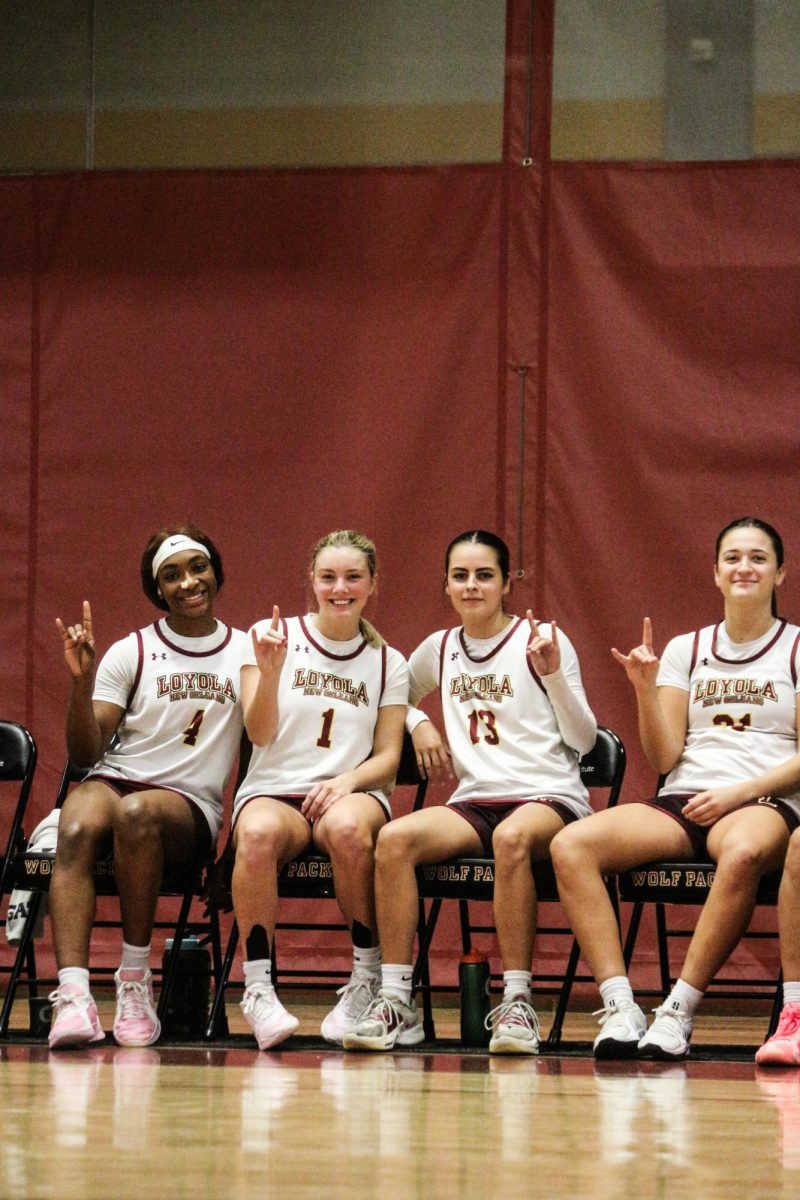War: what is it good for? Learning about history, of course. Students at Loyola in the late 1930s and early 1940s had a great deal to say about the politics of their time, most notably about World War II, and they took to The Maroon to say it.
An article called “The Sane Course,” written on Sept. 23, 1938, points to a portion of the student body that strongly believed that America should stay out of the war. It said, “Our blood ties with Britain are strong, it is true. But we must hold steadfastly to our knowledge that even ties like these do not justify enormous sacrifices of youth and money in an offensive war.”
Another article in the same issue, called “No Dictator Here,” emphatically argues the idea that the United States will never fall under the sway of a dictator as Germany had done. “(The summer of 1938) revealed in no uncertain terms that America will have nothing to do with visionary megalomaniacs of Hitler-like proportions, that her people are content with Democracy, and that any attempt to obliterate government of the people, for the people, and by the people will be repudiated loudly and surely.”
The Maroon also conducted several polls of Loyola’s students in the 1940s. On Sept. 26, 1941, 87 percent of Loyola students answered “no” to the question, “Do you think the United States will stay out of war?”
A second poll, taken on Dec. 12, 1941 (the first issue after the attacks on Pearl Harbor), said that 49 percent of male students said they would volunteer if an army had to be mobilized to attack Japan. According to the poll, freshmen and sophomores were the most “eager” to volunteer, juniors were divided, and the seniors wanted to finish their education before going to war. A poll in the following week’s issue said that 51 percent of Loyola students supported immediate action against the Japanese, rather than waiting for a draft.
Students were not the only ones stepping up to give their opinions. In March 1942, Loyola hosted a talk by Ernst Winkler, who was a refugee German army officer. During his speech, he said, “We cannot live quietly in the world as long as there is still any Nazi movement which works openly or secretly against the ideals of human liberty, human dignity, and against the right of each human being to live his own life.”
Students began to give up small things like nylon stockings, and began rationing various supplies, such as napkins. But they also went an extra step. On Jan. 16, 1942, a poll said that 94 percent of Loyola students would willingly give up all or part of their scheduled summer holidays to make the four-year undergraduate program shorter.
Lora Ghawaly can be reached at llghawal@loyno.edu







